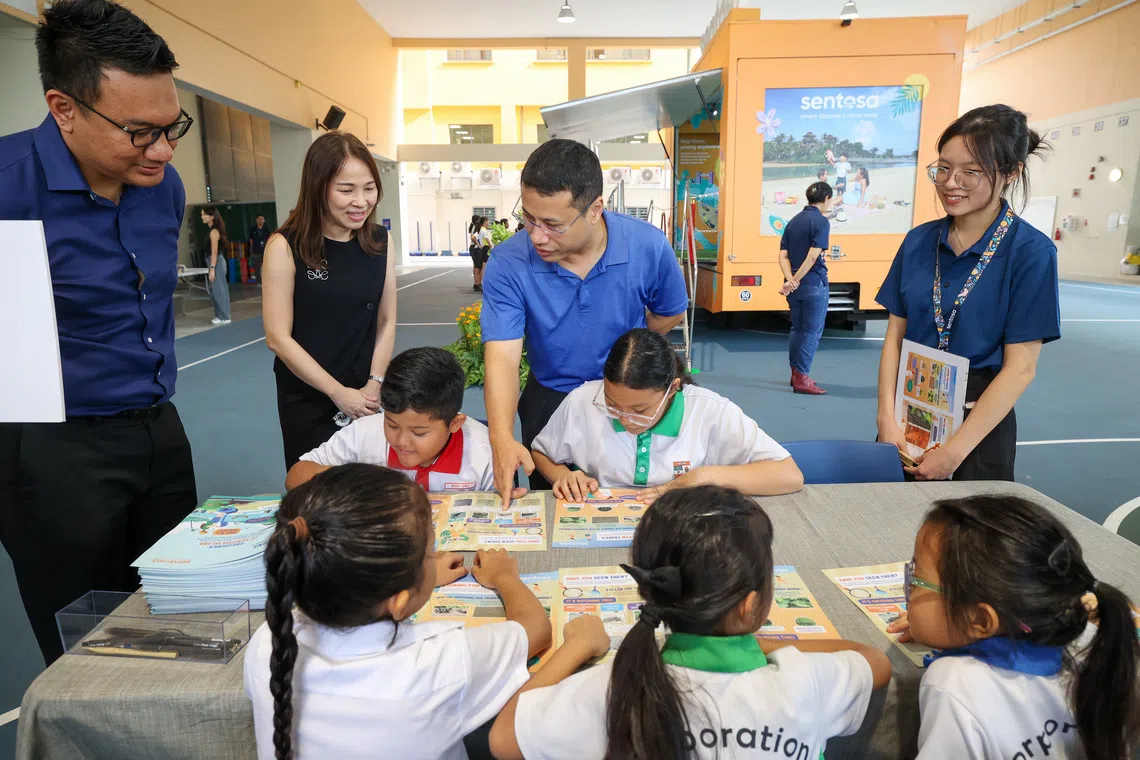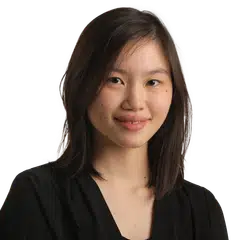Govt refreshing approach to tackling inequality, reforming education: Desmond Lee
Sign up now: Get ST's newsletters delivered to your inbox

Education Minister Desmond Lee said Singapore’s society has not entirely moved away from seeing education as an arms race.
PHOTO: LIANHE ZAOBAO
- Singapore is refreshing its approach to social issues like inequality, fostering collaboration between government, community, and corporate partners to tackle them.
- The education system is moving away from a narrow focus on grades, to equip students with critical thinking skills and adaptability.
- The government hopes to reduce the stakes of exams and ensure equal opportunities for all students, regardless of background.
AI generated
SINGAPORE - To prepare Singapore for the future, the Government is refreshing its approach to tackling difficult social issues such as inequality, and transforming the education system, said Minister for Education Desmond Lee.
In a rapidly changing world, it is no longer enough to equip younger Singaporeans with knowledge alone, as the knowledge imparted today may well be outdated tomorrow, Mr Lee said during the debate on the President’s Address in Parliament on Sept 25.
What is more important is for younger Singaporeans to be agile and resilient, to be able to think critically and learn continuously, so that they can navigate a more uncertain environment, said Mr Lee, who is also Minister-in-charge of Social Services Integration.
He gave the example of one student who, despite the abuse she endured from her father, found success in her studies and now works with a therapeutic group home for children where she had once stayed.
This is an example of how not everyone takes the same path to success, and that success can mean different things to different people, he said.
Mr Lee said the education system must provide pathways for children to flourish, no matter their starting point, support them to pursue their aspirations, and cultivate strong values so that they give back to society.
He said Singapore has been moving away from a “narrow meritocracy” that ties achievement solely to grades and paper qualifications, to becoming a society that recognises that success comes in many forms.
“Whether in the arts, technology, sports or other fields, we want to celebrate the diverse talents of every individual and respect the contribution of every worker,” he said.
Mr Lee noted that the shift cannot happen overnight, but is a multi-year effort.
In the past, success was largely measured by grades, with the Primary School Leaving Examination (PSLE) graded on a bell curve and pitting pupils against one another, he said.
Over time, exams were removed for Primary 1 and 2, and mid-year exams were removed for all primary school pupils
The PSLE T-scores and bell curve were removed, and Achievement Levels or AL bands were introduced
Full subject-based banding was implemented in secondary schools
However, the reality is that Singapore’s society has not entirely moved away from seeing education as an arms race, Mr Lee added.
He said the Government will study how to reduce the stakes in exams, which should not remain a “high-stakes checkpoint” for students with the view that it will determine the rest of their lives.
Instead, there will be a focus on the more important aspects of a child’s experiences in school – developing life skills, interpersonal relationships, good character and values. “In the working world, we all know that grades might still get you through the door, but how you are as a person determines how you do,” said Mr Lee.
Schools will also prepare students for a world transformed by artificial intelligence, with AI enhancing, rather than supplanting, learning, he added.
Mr Lee said Singapore must guard against the “opportunity gap” in the education system, where families with more resources “hothouse” their children to give them a leg-up in school, while children from lower-income families face an uphill battle.
If Singapore does not close these gaps quickly, they will only widen, he warned.
The Government will, therefore, enhance resources for schools and deepen partnerships with parents and the community to better support lower-income students, said Mr Lee.
To prevent divisions along lines such as race and religion, children will also have more opportunities to interact with peers from different backgrounds from a young age, to learn together and learn from one another.
These changes are not easy, but necessary, requiring a fundamental rethink of the country’s approach to assessments, curriculum, learning and how Singapore organises its education system, added Mr Lee.
On the social front, he said there have been shifts in how Singapore tackles difficult social issues, such as inequality and social stratification.
In the past, the Government and community worked in silos, with the Government providing assistance to meet the basic needs of those struggling, he said.
Mr Lee referenced a key thrust of Prime Minister Lawrence Wong’s speech on Sept 24, when PM Wong said that the Government, community, volunteers and corporate partners cannot afford to work on their own, but must stand together as close partners.
Mr Lee gave the examples of the Peers Network for rough sleepers and the New Environment Action Team network to tackle hoarding issues
Along the way, new structures, policies, standard operating procedures and data systems will need to be developed for collaboration and integration, he said.
But he added that a key ingredient in the new approach is building trust, which is not easy to do and will take time and effort.
Mr Lee said it is something that must be done.
He said: “As social issues become increasingly complex and interconnected, everyone must come on board. No one person or organisation, including the Government, has all the solutions.
“In our ‘we first’ society, we must all come together to lift each person up. When we help others thrive, we grow stronger ourselves.”



